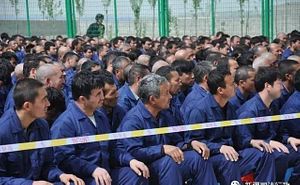Recently, China firmly denied any report that emphasizes the existence of many “re-education camps” in the Western region of Xinjiang, where Muslim minorities, mainly Uyghurs and Kazkahs, are detained. Chinese official Hu Lianhe declared before the UN Committee on the Elimination of Racial Discrimination (CERD), that “there is no arbitrary detention” and “no such thing as re-education centers” in Xinjiang. Foreign Ministry spokesperson Hua Chunying stated that reports on Xinjiang’s detention camps “are based on unverified and irresponsible ‘information’ that has no factual basis at all.”
Yet, a huge amount of factual and publicly available material proves the opposite: local government public documents, pictures and satellite pictures, a plethora of testimonies. Based on an academic methodology, the brilliant work of international scholars such as Adrian Zenz, Rian Thum, Jessica Batke, and Shawn Zhang (to name a few) greatly helped to unveil this reality.
Considering that the debate on the existence of the camps is settled, I would like to discuss the possible impact of these policies on China’s own interests.
In brief, China’s goal is to fight extremism, separatism, and terrorism (the “three evil forces”) through a massive surveillance and de-extremitization system. But rather than being successful, this strategy could result in the definitive alienation of the Uyghur population as well as other Muslim minorities and could drastically worsen radicalism both at home and abroad.
China experienced a harsh rise in terrorism in 2013 and 2014, with hundreds of casualties across the country. Outside China, several thousand Uyghur fighters have taken up arms in Syria since 2013, gaining training with an eye toward eventually fighting their ultimate enemy, the Chinese authorities in Xinjiang. China’s anti-terrorist campaign since 2015 has proved to be efficient since almost no attack in China has occurred since. This decrease is due to the omnipresent security apparatus deployed in Xinjiang. Surveillance is tighter than it has ever been before in China or even elsewhere in the world. Police, assistant police, armed police, and military personnel are constantly watching and patrolling Xinjiang’s streets and countryside. Technology is the new factor here, with internet surveillance, facial and voice recognition, integrated CCTV cameras, DNA records, and so forth. In addition, the “transformation trough education” (教育转化) campaign has led to the detention of a massive number of Chinese Muslim citizens (at least several hundreds of thousands). They are detained in brand-new camps, built to “de-extremitize” the elements of the society that are “infected by religious extremism and violent terror ideology.”
While effective on the surface, China’s draconian approach will have consequences.
First, extremism and separatism may grow stronger silently. Under the current security apparatus, terrorist violence seems very unlikely since any attempted act would be repressed immediately. However, religious extremism can only grow stronger in the hearts and minds of people that feel persecuted and suppressed for their cultural identity and religious belief.
Second, Chinese policy toward the Uyghurs is already galvanizing the Uyghur diaspora and human rights NGOs worldwide to pressure governments and the UN to oppose China on this matter. Instead of accusing the United States and Western media of willingly spreading false information to harm China, Beijing should provide more information and transparency about the situation in Xinjiang. In fact, Western media discourses are not the main harm to the world’s view of China (most of the information was revealed by international scholars); it is rather the fact that China never provided any comment on the issue until it was forced to, before the CERD of the UN Office of the High Commissioner for Human Rights, on August 13, 2018. Stating that “the Xinjiang Autonomous Region always respects and guarantees the human rights of people of all ethnic groups, and protects the freedom and rights of citizens of all ethnic groups,” and that “their freedom of religious belief are fully guaranteed” achieves nothing other than discrediting Beijing’s voice on the international stage.
Third, China’s actions will also galvanize militants worldwide. Uyghur separatist organizations exist outside Chinese borders, namely the Turkestan Islamic Party (TIP) that operates in Afghanistan, Pakistan, as well as in Syria. TIP and other organizations such as the Islamic State are likely to benefit from the resentment against China among the Uyghur and Kazakh populations in South and Central Asia to recruit fighters. China has plenty of infrastructure projects abroad, especially in Central Asia and Pakistan, that could be chosen as targets for terrorists seeking to avenge fellow ethnic and religious groups in Xinjiang.
Analysing the Xinjiang situation from the perspective of Chinese interests, it is hard to see how China benefits from its massive repression of Muslim populations. There is a highly significant risk that these kinds of policies could exacerbate interethnic resentment, separatism, and extremism at home, harm China’s international image, and make China e a target of terrorist organizations abroad. In short, the cure might prove to be worse than the disease.
Marc Julienne is Ph.D. candidate at the National Institute for Oriental Languages and Civilizations (INALCO) in Paris, as well as Resident Associate Fellow at the Foundation for Strategic Research (FRS).

































